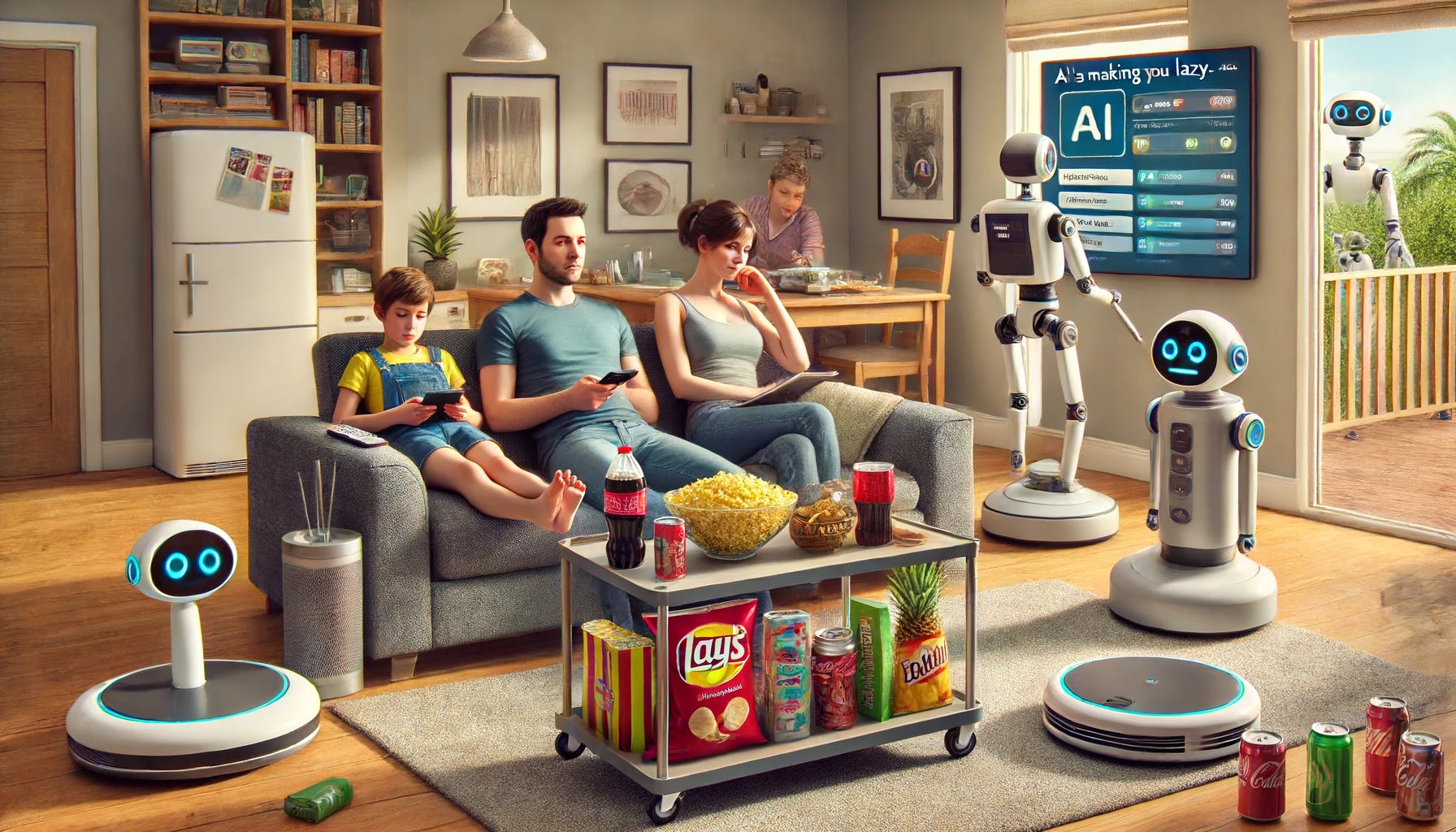🤖 The Hidden Trade-Offs of AI Productivity: A Developer's Perspective
AI tools like ChatGPT, ClaudeAI, GitHub Copilot, and many others have become omnipresent in our digital workflows. They’re truly remarkable — I must admit that. These tools can write code, debug errors, generate content, and even assist in making complex decisions. But as with any innovation, they come with trade-offs. One question continues to linger in my mind:
Are AI tools genuinely helping us grow, or are they quietly making us lazy?

🛠️ My Early Journey Without AI
I began my web development journey back in 2021, during my college years — a time when AI tools hadn't yet gone mainstream. Learning was a slower but deeply engaging process. I had a mentor who guided me whenever I hit a roadblock. For every error I encountered, I either consulted him or spent hours on Google, hopping between tabs, reading Stack Overflow threads, scrolling through blog posts, and trying to connect the dots on my own.
And while that process was sometimes frustrating, it forced me to build resilience, patience, and — most importantly — problem-solving skills.
🧠 What Makes a Real Software Engineer?
Software engineering is not just about how many lines of code you write, how quickly you build, or even what stack or architecture you use. These are important, yes — but the core foundation of a great engineer is problem-solving.
If you can’t understand and dissect a problem, you can’t build a clean, scalable solution around it. You may still write code, but it will lack depth and purpose.
⚙️ The Shift: Enter AI Tools
When I first started using ChatGPT, I was amazed. It could explain errors instantly, optimize code, and even generate complete solutions with just a few prompts. Naturally, I started using it more frequently.
What started as an occasional assistant soon turned into a daily dependency.
I would copy-paste an error into GPT, apply a few tweaks based on the suggestions, and move on — without giving it a second thought. This instant gratification slowly started eroding my patience and problem-solving instincts.
⚠️ The Dark Side of Convenience
I started university in 2023, excited about the semester system, new coursework, quizzes, and projects. But looking back now — from Semester 1 to Semester 4 — I can honestly say that I haven’t completed even a single assignment completely on my own.
The workflow became disturbingly simple:
Download the assignment → Feed it into GPT → Submit it.
No critical thinking, no brainstorming, no struggle. Just output.
This is where I began to realize the real cost of over-relying on AI tools. They didn’t just change how I work — they started shaping how I think (or don’t think).
🌟 It’s Not All Bad: The Value AI Still Brings
Despite this harsh reflection, I am not against AI tools — far from it. They’ve accelerated my learning, helped me grasp new technologies faster, and allowed me to reduce redundant work. In coding, tools like Cursor.ai were initially game-changers for me, and now I've shifted to Trae.ai, which I’ll review in a separate blog.
AI is here to stay, and I believe we should embrace it — but with intentionality.
🧭 Final Thoughts: Balance is the Key
AI tools have undoubtedly made life easier — but they should not replace our effort, curiosity, or creative thinking. Automation should support learning, not bypass it.
Going forward, my goal is to rebuild my problem-solving mindset, use AI more mindfully, and not let it take away the very essence of what makes us true engineers: the ability to solve problems from the ground up.
